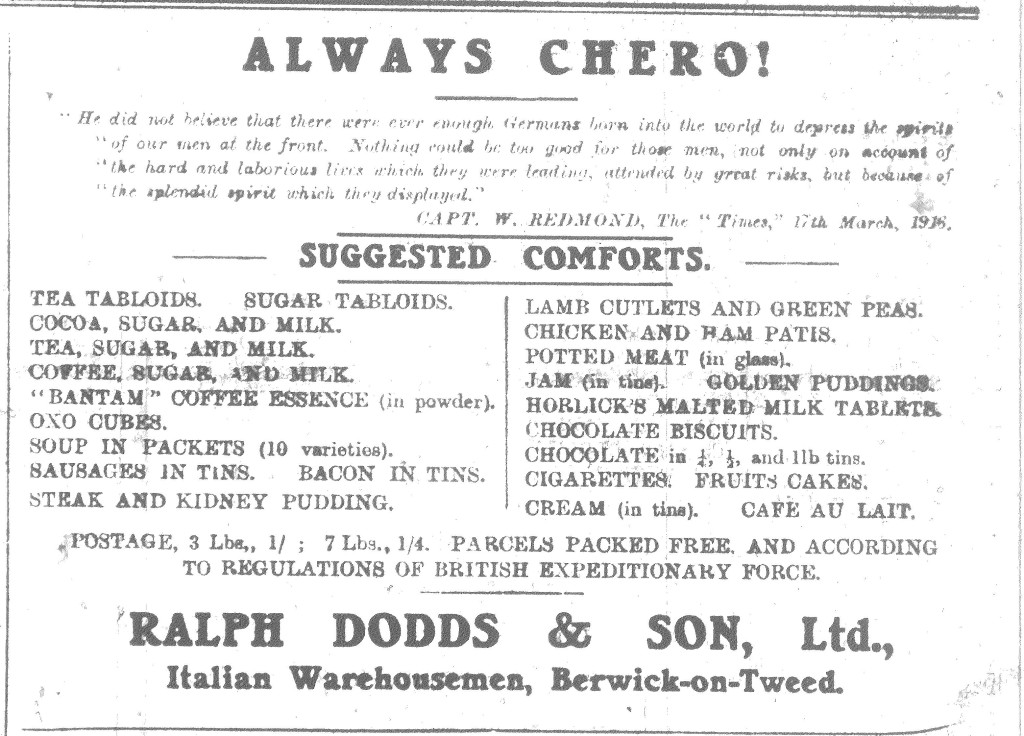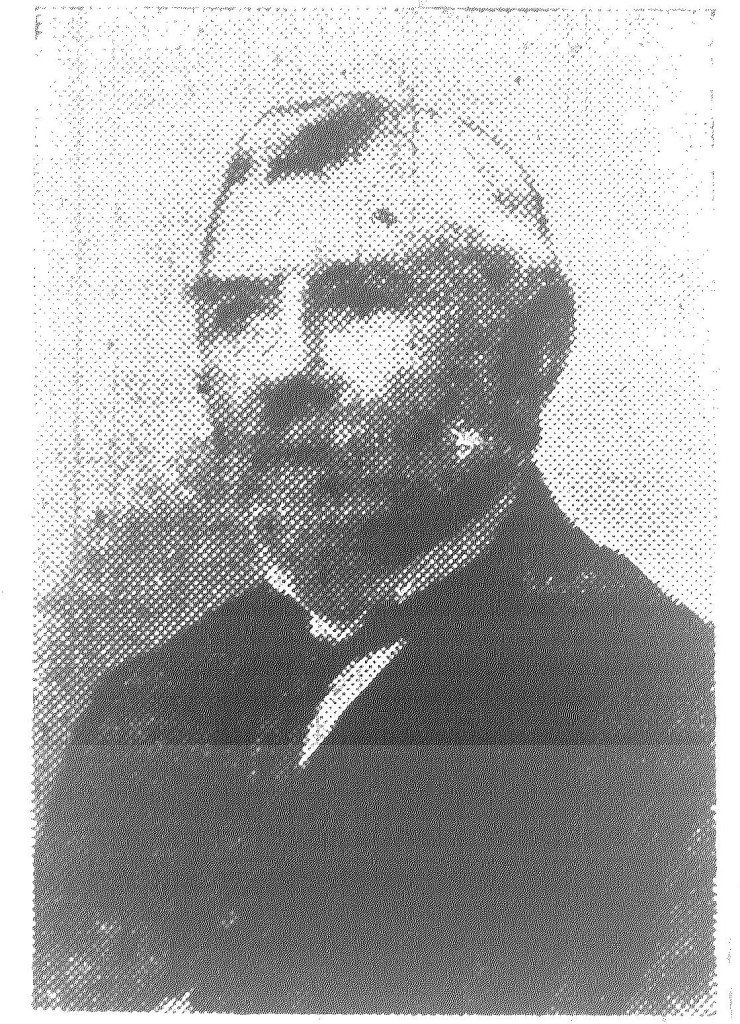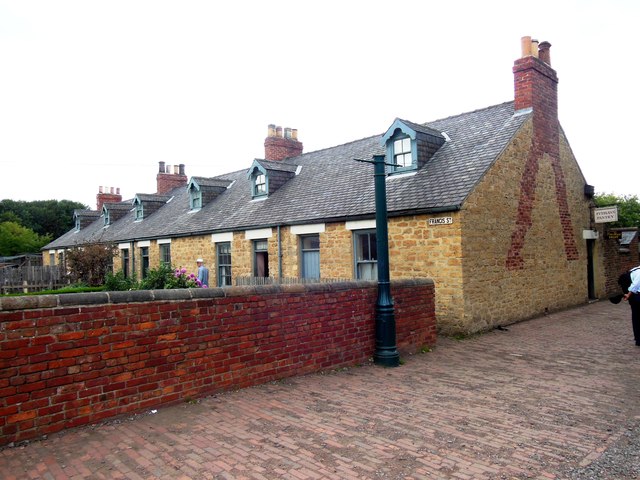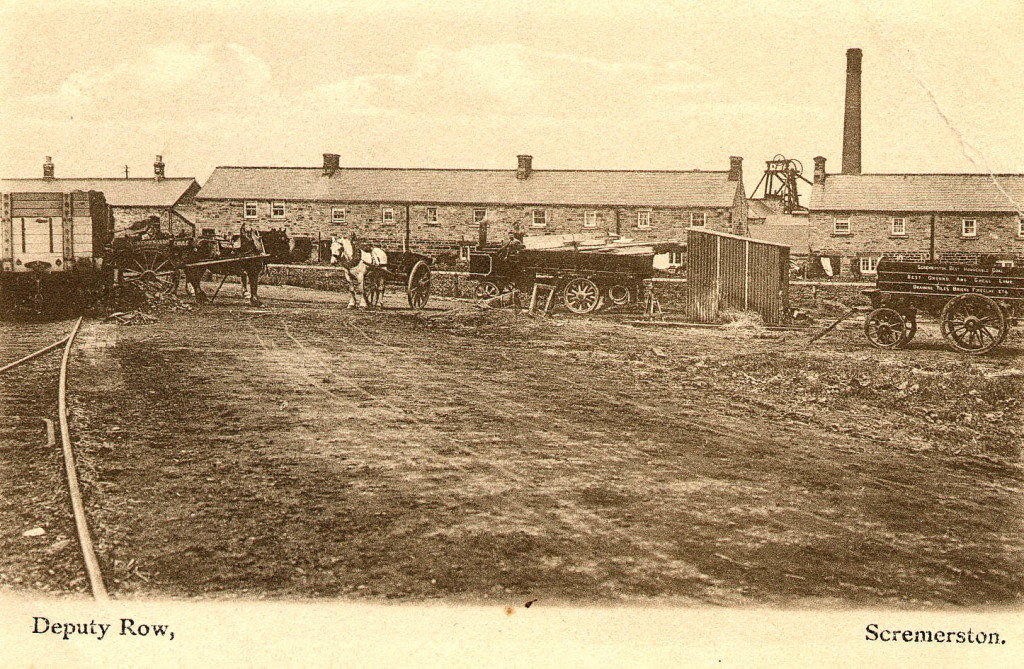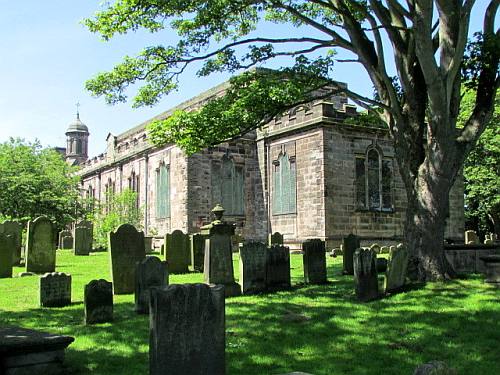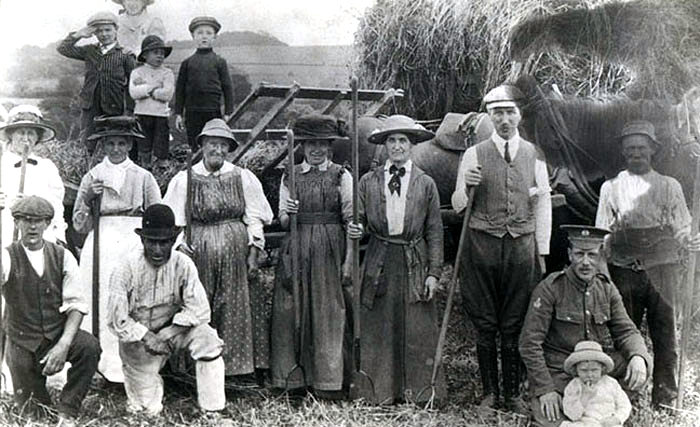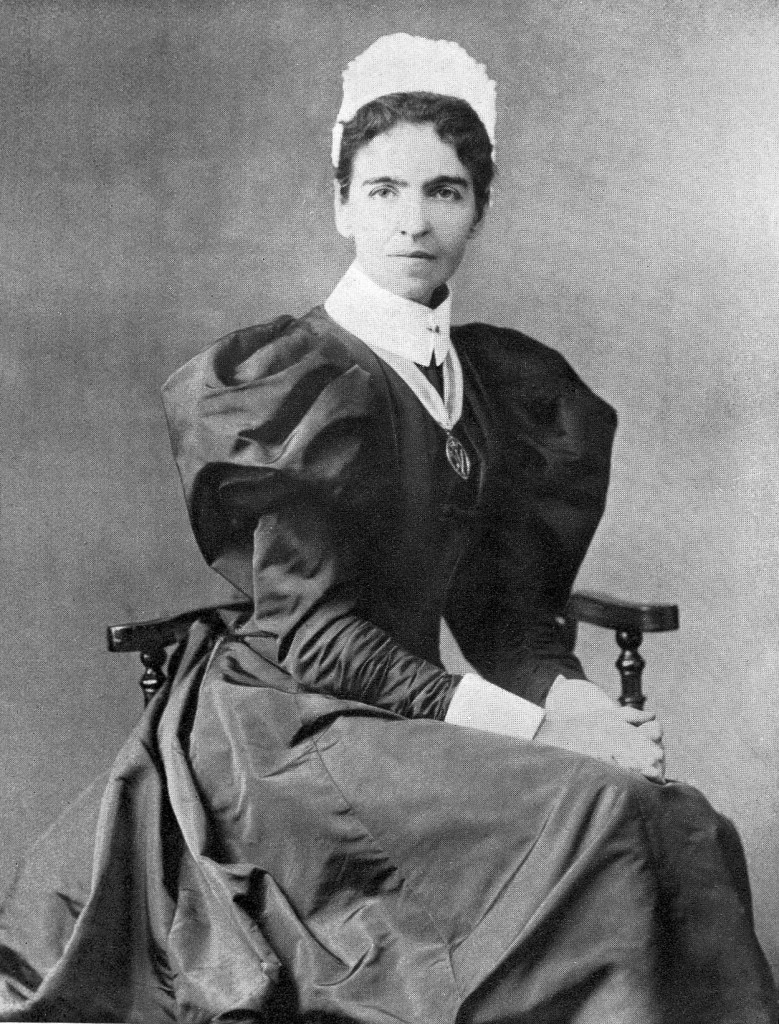BERWICK ADVERTISER, 7 APRIL 1916
BERWICK LIFEBOAT- MEN IN LONDON
Feted and honoured by the R.N.L.B.I.
It was no small honour that was shown to Berwick in London on March 29th. At Caxton Hall, Westminster the annual meeting of the Royal National Lifeboat Institution was held, and a very large and distinguished company met to hear the yearly report of work done by the Lifeboats, and also to grant awards to Coxswains who had specially done meritorious service.
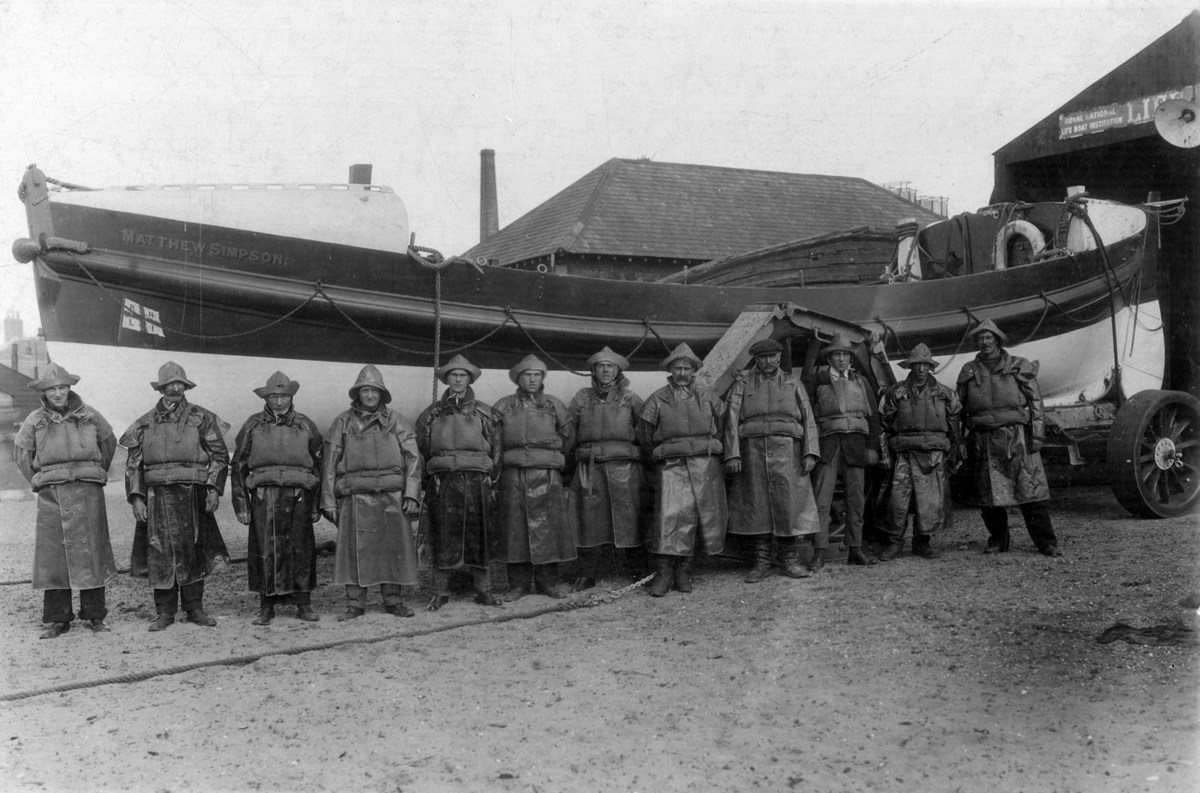
On the platform were the Right Hon. The Earl of Plymouth, P.C., C.B.,- Chairman; the Right hon. The Earl Waldergrave, P.C. the Right Hon. the Lord Sydenham, G.C.S.I., G.C.M.G., G.C.I.E.,; the Rev. Hugh B. Chapman, chaplain to the Savoy, and Lt. Col. Fraser, V.D., R.A.M.C. (T.)
After the report had been read and adopted, Coxwain James Jamieson of the Berwick Lifeboat, and Lt. Col. Fraser were asked to stand while the record of their service was read to the meeting. This was done and great applause followed, which was renewed when Jamieson faced the meeting wearing his medals. He thanked the Chairman and those present in a few well-chosen words. Lieut. Col. Fraser also received an ovation when he appeared before the chairman, and was most cordially congratulated.
BAD CASE OF CRUELTY TO A HORSE
Berwick Petty Sessions
Joseph L. Ayton, Berwick, grocer, was charged with allowing a horse to be wrought on the 18th March, while suffering from sores on the back, Robert Lyons, Berwick, carter, a boy, was also charged with cruelly working the horse at Tweedmouth. Inspector Robinson of the S.P.C.A. prosecuted.
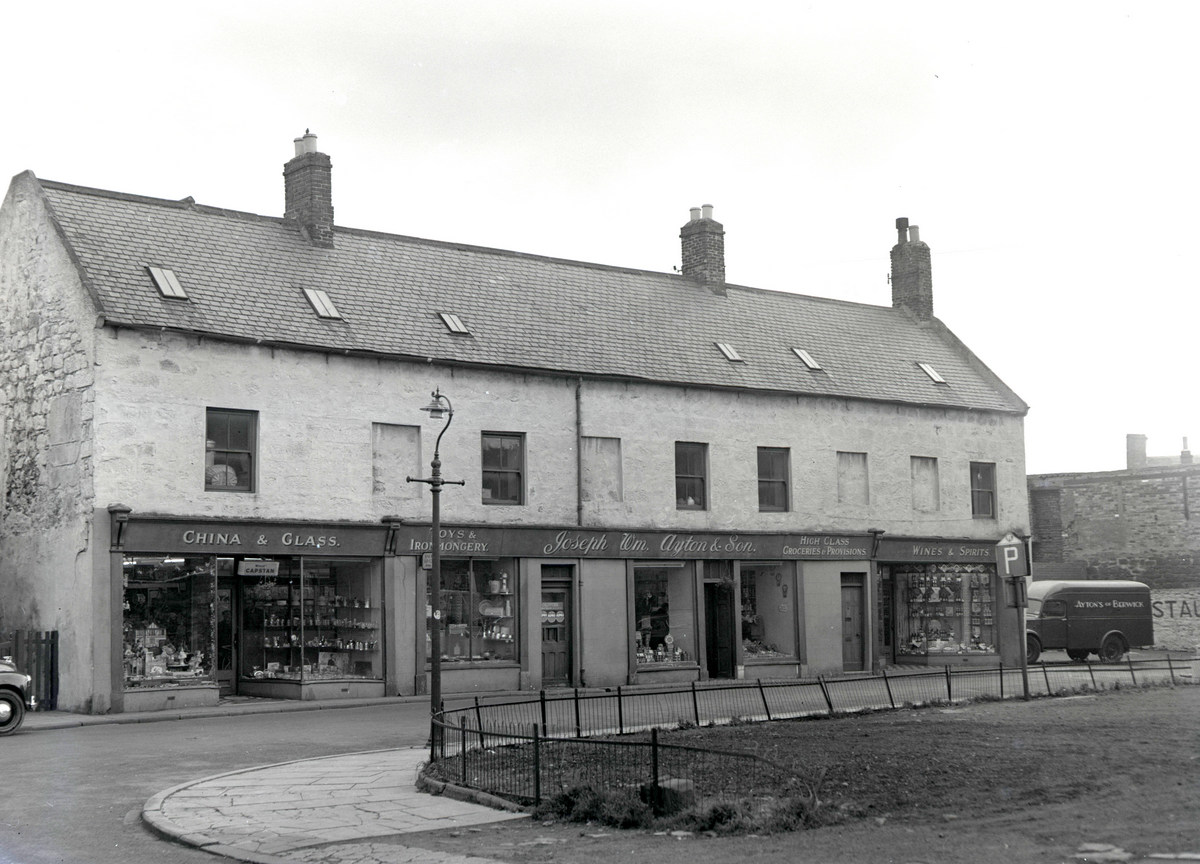
Sergt. McRobb said on the Saturday mentioned he was on duty with Sergeant Wilson. He saw that there was something wrong with the horse, and on examining its back he found a very bad wound which went into the back bone. The saddle was resting on the wound. It was the worst case he had ever seen. He asked the driver if he saw the wound, when he yoked the horse, and he replied that the employer (Joseph L. Ayton) put on the harness. No one could have yoked the horse without seeing the wound.
Sergt. Wilson said that it was a very bad case. There were two wounds, one of them as large as a 5s piece, which went to the bone.
Inspector Robinson said that he examined the animal. It was a black gelding. There were two very bad wounds, one on each side of the back. They were deep wounds and full of matter, inflamed and tender to the touch, and the animal must have suffered great pain. Ayton, the employer, admitted it had two sores, and that he was looking out for a place to send it to.
Joseph L. Ayton, owner of the horse, said he knew there were two sores on the animal’s back and that he was looking for a place to send it to. The horse had been treated by a vet., who gave some ointment to put on the sores, and said it would soon be all right.
Cross-examined – The horse went round the district. He knew that the animal had a bad back, and that it was not in the best condition.
The Bench bound over Lyons to be of good behaviour for the next six months. Ayton was fined £3.
BERWICK TRIBUNALS
BAKER’S CLAIM
John M. Dudgeon, baker, appeared on the ground that he was a partner of a firm of contractors to the army and navy, and that he was under obligation to work every day in the week to execute these.
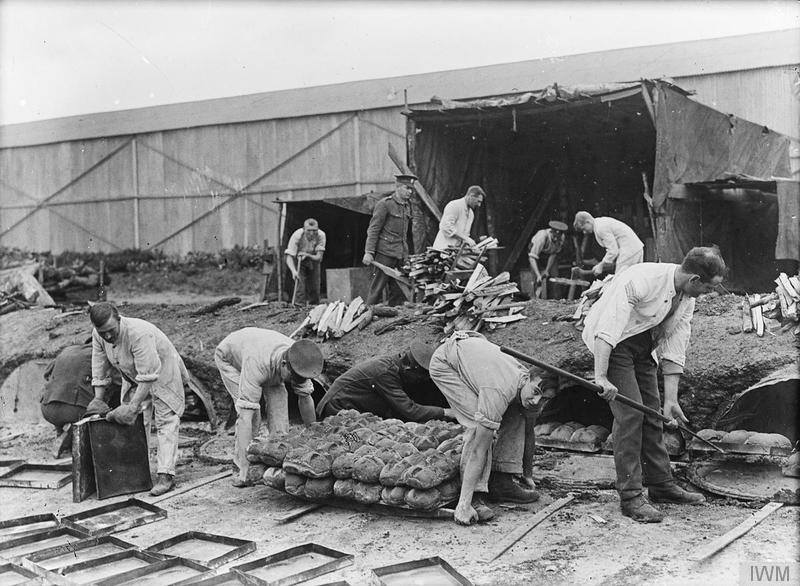
In answer to Mr Hogarth, the appellant said if his firm had no Government contracts he would be quite prepared to go. He was not only in a certified occupation, but he was personally responsible for turning out 400 loaves daily to the army alone.
It was agreed to grant exemption so long as the appellant remained in his present employment.
MOTOR DRIVERS CASE
Andrew Hogg (27), 18 Ness Street, was claimed by the British Petroleum Company on the ground that his services were indispensable to the Company.
In answer to questions it appeared that the Company supplied contracts to the army, and that a condition was that the oil must be delivered to them. Although badges and other stars had been issued to certain workmen doing this kind of work the Company’s men had somehow been always missed out. The appellant was required for the working of the three depots of the company at Berwick, Burnmouth, and Eyemouth.
It was agreed that the appellant should be asked to serve.
A CONVENIENT CALLING
John Purves (39), Mordington, foreman market gardner, was claimed by his employer, Andrew Ironside, on the ground that his services were indispensable.
In answer to Mr Hogarth it was stated by Mr Ironside that Purves had been in his employment some five weeks.
Mr Hogarth – It is suggested that this man has come to you for shelter, by getting into reversed occupation.
Mr Ironside – I don’t think that is the case. I would not have taken him if I could have got another, and I applied to the Labour Exchange both for men and women
The Chairman said that the decision of the Tribunal was that they saw no reason why the appellant should not be called upon to serve.


